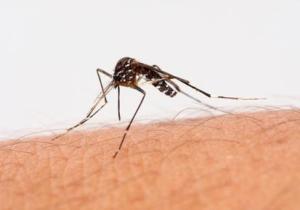New type of Antimalarial compounds discovered by scientists
Friday, November 18th, 2011 8:23:39 by Taimoor Tariq
New type of Antimalarial compounds discovered by scientists
A team of scientists led by the Genomics Institute of the Novartis Research Foundation have uncovered a family of chemical compounds that might lead to a new type of antimalarial drugs that will not only alleviate the symptoms but will also prevent the deadly
disease.
On November 17, 2011 a study was published in Science Express whose lead researcher Dr Elizabeth Winzeler demonstrated that this new class of compounds was far more effective against malaria than the drugs that are currently available in the market.
Most of the commercially available antimalarial drugs are only effective during the blood stage and those that do work in the liver have some side effects.
However, these new class of compounds are highly effective against the parasites both in blood and liver.
"Because the parasite blood stages are more amenable to high-throughput screening, much research has focused on that area," said Stephan Meister, PhD, a research associate in the Winzeler lab and first author of the new paper. "We’re excited to have found
a class of compounds that appears to target a novel gene and is highly active against the liver stage parasites in mice. This compound class provided us with a lead for the development of novel anti-malaria drugs."
Despite long-standing efforts in order to eradicate malaria, this disease is still endemic in many parts of the world. According to WHO, about 225 million people suffered from malaria in 2009 and out of those, 800,000 lost their lives. The poorest and vulnerable
populations in Asia, Africa and the Americas are still stricken by this disease which is caused by the Plasmodium parasites that enter the blood stream when an individual is bitten by an infected mosquito.
Thousands of candidates were screened by scientists in order to find specific compounds that act against Plasmodium. Winzeler says that most of the compounds are active against blood stages and might never do anything about eradicating malaria.
The group then identified the strongest candidates for drug development by mining the data for groups of related compounds that all showed activity in the liver. In the end, they settled on a cluster related to the chemical imidazolopiperazine. "When we
analyzed all of the data, we saw that multiple members of this imidazolopiperazine family were active in blood and liver stages," Winzeler said.
In the end, the team was able to develop compounds that could be orally taken and would stay in the blood stream long enough to be viable candidates for drug development.
When this was given to mice, the compound was able to completely protect against the parasite in the liver and worked far better than the commercially available drugs.
To better understand how the compound works, the team exposed successive generations of infected mosquitoes to low levels of the compound to produce resistant strains of parasites. They then sequenced the parasites’ whole genomes and looked for genetic changes.
"Every [resistant] strain we looked at had a mutation in the same gene," she said.
In addition to Winzeler and Meister, the authors of the Science paper, titled "Exploring Plasmodium Hepatic Stages to Find Next Generation Antimalarial Drugs," include Selina E Bopp, A. Taylor Bright, and Neekesh V. Dharia, of Scripps Research; David M Plouffe,
Kelli L Kuhen, Ghislain MC Bonamy, and S.Whitney Barnes, of the Genomics Institute of the Novartis Research Foundation; and researchers at Columbia University Medical Center, UC San Diego, the Novartis Institute for Tropical Diseases and the Swiss Tropical
and Public Health Institute.
This study was funded by the Wellcome Trust, the Medicines for Malaria Venture, the Genomics Institute of the Novartis Research Foundation, the Swiss Tropical and Public Health Institute and the Novartis Institute for Tropical Diseases.
Tags: antimalarial compunds, Dr elizabeth winzeler, malaria, mosquito, novartis research foundation, plasmodium, science express, WHOShort URL: https://www.newspakistan.pk/?p=4050

















